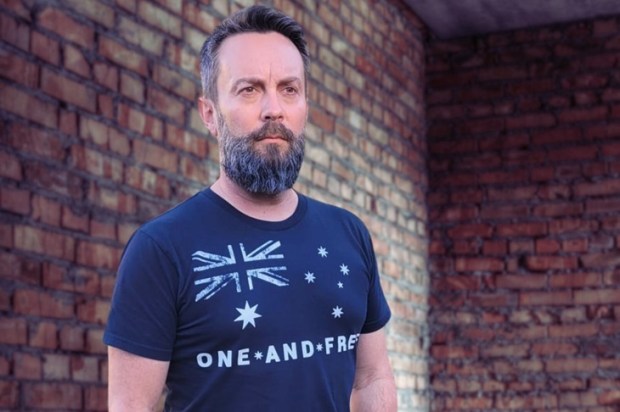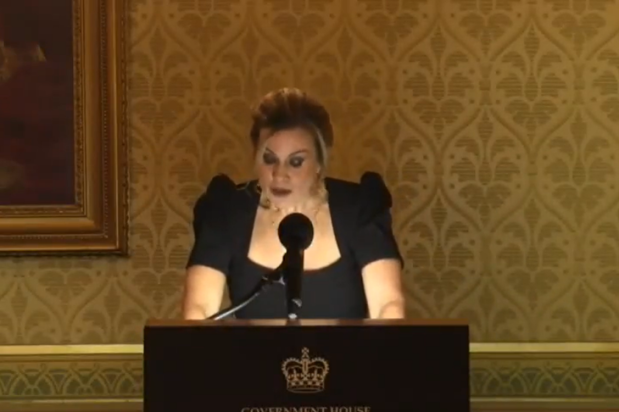There’s a party running in the Victorian Election tomorrow that goes by the name of ‘Sack Dan Andrews – Restore Democracy’ but if you vote for it, your vote may end up counting for Labor, at least, that is what a leaked video doing the rounds on social media alleges.
The story, covered by most major news outlets this week, reminded Victorians that they are the only state sticking to an antiquated preference system. The truth is, it’s almost impossible for the average person to know where their vote will end up unless they vote in a careful and informed manner.
If Victorians take the easy option of voting ‘above the line’ for the Legislative Council (by putting a [1] in one box next to the party of their choice), who their vote actually ends up landing under by way of Australia’s preferential and proportional representation vote-counting system is a mystery that would’ve stumped Stephen Hawking.
The Victorian Electoral Commission seems to do little to help unravel this mess. You’d think on the landing page of their website there’d be a screaming headline, ‘Click here to find out where the parties will allocate preferences if you only vote above the line!’
Alas not. Finding the ‘Registered Group Voting Tickets’ that each party has to submit to say where they’ll allocate their preferences is almost as complicated as counting the votes.
Conspiracy theories flourish when there’s no clear information or transparency, while trust and confidence in an electoral system is damaged when the system is too complicated for people to understand.
Those whose job it is to manage a free and fair election need to remember that trust is everything and the perception of fairness is even more important than the reality of fairness.
But then, you can’t blame the good bureaucrats at the VEC. It’s not as if we’re living in an age where people around the Western world are starting to question the outcomes of democratic elections or anything.
My personal conclusion to the problem is not to vote above the line. If I was facing the polls in Victoria, I would definitely be taking that extra minute or two to number every box below the line. Problem solved.
For those interested in what shenanigans might be going on here, let’s take a deep breath and try to unravel the mystery…
Similar to its federal equivalent, the Australian Senate, the Victorian Legislative Council is the ‘upper’ house of the state’s bicameral (two chamber) Parliament. The ‘lower’ house is of course the Legislative Assembly, a house of representatives in which the party or coalition of parties that holds the majority, forms the government of the day.
Like the Senate, the Legislative Council serves as a house of review, with its 40 members serving four-year terms. In order to elect the Member of the Legislative Council (or MLCs), Victoria is broken up into eight districts, each of which regions selects five members.
Clear so far? Good. Because it’s about to get as muddy as next year’s hosting line-up on The Project.
To get in the lucky top 5, you need to win at least one-sixth of the vote plus one. So about 16.7 per cent of the formal vote count. That’s what the boffins call the ‘proportional representation’ bit. Like the lower house, if you vote responsibly (below the line) and number every box yourself, your vote will be allocated according to your preferences until it is ‘exhausted’ (a bit like you will be after you number every box). That’s what the boffins call the ‘preferential voting’ bit.
Still with me? Never mind, neither am I.
A very smart video blogger called Topher Field made a video explaining all this before the federal election using marbles to represent the votes. Watching this video will help ensure you don’t lose your marbles.
Far from thanking Topher for doing their job for them for free, the Australian Electoral Commission made him take the video down for a while because – wait for it – it didn’t have that speedy little talking guy at the end saying who the video was ‘authorised by’. Nothing like our highly paid bureaucrats focusing on the important stuff.
Anyway, back to this weekend’s election. I realised that if I employed laziness and put a [1] above the line, I would be allowing the party to allocate my preferences. In the Legislative Council especially, this can cause unintended outcomes.
Some really ‘clever’ people worked out that you can ‘game’ this system by creating a whole bunch of parties with funny names who do deals with a whole bunch of other small parties with funny names, that then send the preferences flying all over the place in a manner that might end up supporting a particular candidate. Maybe a candidate who’s paying them to game the system.
Let me be clear: I am not suggesting this is actually happening. Only that it could happen. But only if we had a government someday, somewhere that might have some issues with integrity, or an electoral commission that’s maybe not performing at its best.
We return to the good state of Victoria, and the curiously named ‘Sack Dan Andrews’ party.
A Google search of the party’s name takes us one step down a rabbit hole and throws up a website that is indeed the home page of the party, but with a very curious URL, ‘viclabor.org’
This URL does not belong to the Australian Labor Party, but they could buy it if they wanted because it’s (jokingly) on sale for $388,000 at the Sack Dan Andrews – Restore Democracy party’s online shop at viclabor.org/shop with a pretty cheeky message! 
Something very odd is going on here, especially when you consider the bizarre messaged attached to the sale item.
Meanwhile, another step down the rabbit hole, a Zoom call allegedly secretly recorded by Angry Victorians Party leader Heston Russell, is believed to show Derryn Hinch’s former Chief-of-Staff and so-called ‘preference whisperer’ Glenn Druery discussing how he would use minor parties to (allegedly) game the system. Legally.
While the VEC somehow forgot to return The Spectator Australia’s calls today after promising to do so (by time of publication), Electoral Commissioner, Warwick Gately, acknowledged last week in an unrelated interview that there was ‘concern in the community following extensive media coverage’ regarding preference deals.
But was there concern at the VEC, Warwick? And why did it take ‘extensive media coverage’ for you to investigate the matter?
‘Negotiating preferences using the group voting ticket (GVT) system is not prohibited under electoral laws,’ Mr Gately said.
But don’t worry!
‘You can control where your preferences flow if you vote below the line instead of above the line,’ said the Commissioner.
Nobody in Australia ever takes the easy option, so we’re all good.
Mr Gately also noted that following similar community concerns in 2018, a review of the Upper House voting system had been scheduled for consideration by Parliament’s Electoral Matters Committee (EMC) prior to the 2022 state election, but that this had been deferred.
The Liberal Party candidate for Dan Andrews’ electorate of Mulgrave, Michael Piastrino, alleged to Melbourne-based social media channel Rebel News, that the existence of such gameplay – though apparently legal – was disgusting.
‘It’s disgusting we’re hard-working people in Victoria we don’t need this crap,’ he said.
There is one way for Victorians to put an end to all this because the power is completely in their hands. If it were me in Victoria on Saturday, my vote would be going wisely below the line to avoid getting lost in a political swamp.

























